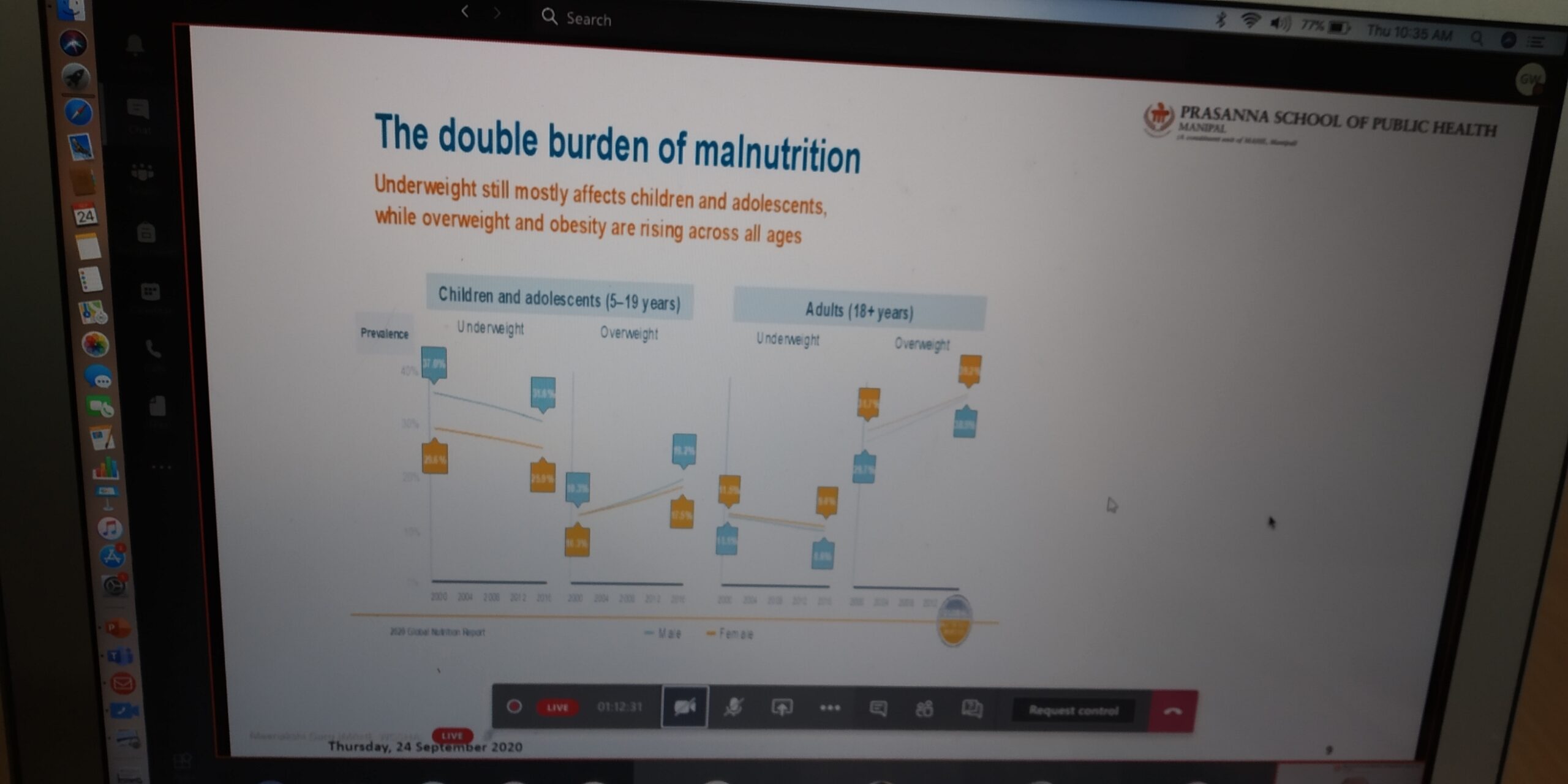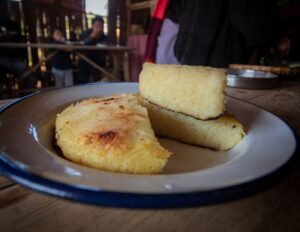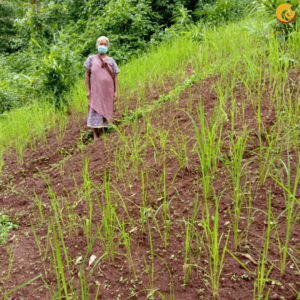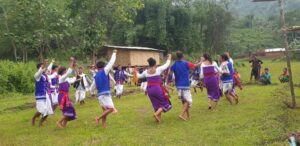It was a great honor and privilege for the North East Slow Food and Agrobiodiversity Society (NESFAS) when their Associate from Garo Hills Chenxiang Rimchi N Marak was invited to speak as a resource person at an international E-Conference of Rashtriya Poshan Maah 2020, organised by Welcomgroup Graduate School of Hotel Administration (WGSHA), Manipal Academy of Higher Education (MAHE), Department of Diabetes and Applied Nutrition on September 24, 2020.

The conference was a two-day event (September 23-24) which saw a great number of expert speakers to talk on the agenda ‘Challenges and Solution to provide continued Nutrition Care and Delivery for all vulnerable groups owing to the COVID-19 pandemic induced paradigm shifts’ which was attended by fellow students and academics.
Chenxiang was asked to present on the promotion of local and indigenous food to improve dietary diversity with her experience of working with indigenous people and as well as on-going projects. She started off by introducing the mission and objectives of NESFAS, and its efforts to promote indigenous and local foods.
She then highlighted the important work and accomplishments of NESFAS, shared her insights on Meghalaya’s nutritional status, local practices of sharing produce, how the community source their food from different areas, and the integrated activities initiated by NESFAS and its partner organisation such as the agrobiodiversity walks, school gardens and home gardens.
The conference had been left impressionable as the key takeaway was shared by Kritika Rai (II M.Sc. Dietetics and Applied Nutrition, WGSHA, MAHE) on the awareness of common food as compared to traditional food, good indigenous practices such as sharing produce among communities, and the initiation of school gardens to improve dietary diversity.
The conference was then followed by an interactive session between the attendees and the speakers, where a question was raised on how to ensure enough nutritional food to communities during COVID-19. Chenxiang clarified by explaining that indigenous communities have good practices of sharing resources and produce after harvest. This helps communities to follow through their dietary plans provided by NESFAS and the Food and Agriculture Organisation (FAO). She said, “Modern foods coming in is indeed a difficult task to change in the diet pattern and snacking pattern of a person. Besides that, overlooking or not considering the nutritious underutilized food plants that have been revived for consumption is also a difficult task.” “The lack of nutritional awareness of local foods and nutritional information on certain food crops in specific areas has become challenging to convince the people of their scientific evidence for their consumption,” she added.
On the other hand, Pallavi Shettigar, an Assistant Professor at the Department of Diabetes and Applied Nutrition, WCSHA, MAHE had commented, “It is good to see that our alumnus is engaged in different field works and sharing their respective work experience is amazing and learning for us too.”





